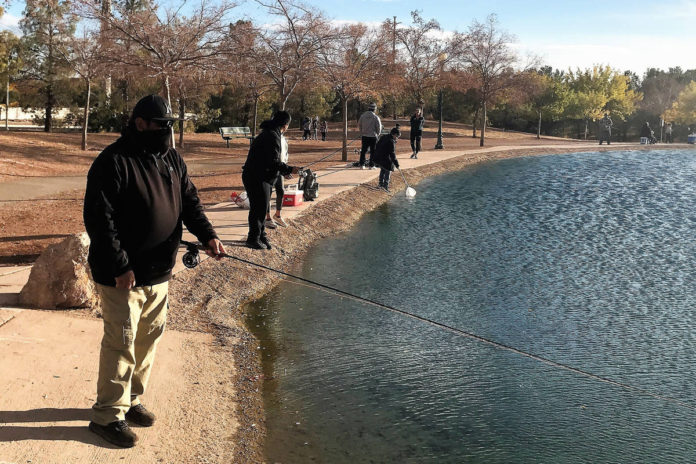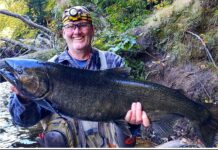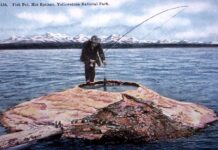When the sun comes up Christmas morning, fishing rods are sure to be among the gifts kids of all ages find waiting beneath the family tree. For some, this gift will be their first rod. For others this might be one of many. Either way, they will be anxious to take their new present out for a test drive as soon as possible.
Those who do not understand fishing just might consider the first use of a new fishing rod to be a trivial thing, something that can be put off “until the time is right.” But I can assure you that is not the case. No matter how young or how experienced an angler might be, there is an excitement that comes with throwing your bait from a new rod and reel for the first time.
If you doubt that, just ask someone who has facilitated Santa’s delivery of fishing rods in the past. You are sure to be regaled with stories of dry runs conducted in such places as the family room, over the dining table or down the hall. Long hallways are the best.
I am not admitting to anything, but more than one casting plug has been delivered across the interior of the Nielsen home. Unfortunately, since my wife and I became empty nesters, I can no longer blame the results of such incidents on the kids.
Luckily, since the winter weather in Southern Nevada is rather mild when compared to other parts of the country, there is no need to put that test drive off while we wait for ice to melt. And since rainbow trout are stocked in the valley’s urban fishing ponds during the winter months, those ponds can be a great place for young anglers to experience the catching part of fishing while breaking in their rod.
Oftentimes, the gifted fishing rod comes in a “combo” with a matching reel that is pre-spooled with fishing line. On entry-level combos that line tends to be too heavy for trout and is generally of low quality, which means it has a strong memory that causes it to coil as it comes off the reel. Those coils lead to knots, and knots lead to frustration. Few things can put a damper on one’s fishing experience like time spent fighting knots instead of fish.
Do your young angler a favor and replace that line with a quality lightweight line. Generally, that means going with something midway up the price range. The stuff you find in the bargain barrel is there for a reason. Four-pound test is sufficient for trout fishing in the urban ponds and most waters within a day’s drive of Las Vegas. Anything more than that is generally overkill and can spook the fish.
What you put on the end of that line can determine whether your young angler catches a fish or simply fishes. The two are not necessarily the same thing.
Keep in mind that trout have a relatively small mouth, especially when compared to a largemouth bass. So, throwing a 3-inch crankbait is not going catch a 10- to 12-inch trout at one of the park ponds. Whether you tie on a lure or a bait hook, think small. For most baits, such as worms, a size 12 or smaller hook is all you need. For PowerBait, you might even consider something in size 14 or 16.
The fish are looking for something they can easily get their mouth over. So, when using something like PowerBait, use only enough to cover the hook. Small flies, like a number 10 Woolly Bugger or a Hare’s Ear Nymph in size 14 also can be effective choices, and they can be fished on a spinning or spin casting rod. All you have to do is tie the fly about three to four feet behind a bubble for easy casting and retrieval.
In recent years, catch-and-release fishing has garnered a rather large following, but some anglers make the mistake of handling slippery trout with the aid of a towel. That is a mistake as it removes the slippery, protective coating found on the fish’s skin. Using your bare hands while keeping the fish in the water as much as possible is the key to a successful release. Using a pair of needle nose pliers or hemostats can help significantly with the release.
Freelance writer Doug Nielsen is a conservation educator for the Nevada Department of Wildlife. His “In the Outdoors” column is not affiliated with or endorsed by the NDOW. Any opinions he states in his column are his own. Find him on Facebook at @dougwritesoutdoors. He can be reached at intheoutdoorslv@gmail.com
Credit: Source link






























